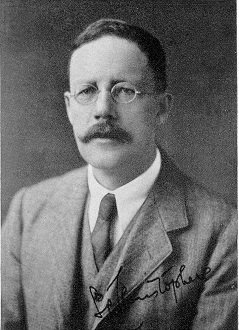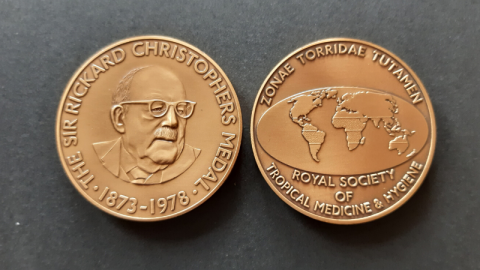Sir Rickard Christophers Medal
The Sir Rickard Christophers Medal is to recognise outstanding work in tropical medicine and hygiene, and evidence of practical and field applications. The Medal is now closed for applications and nominations. The deadline to enter was 10 March 2024 at 17:00 BST.
The Medal is for senior experts in their field.
Eligibility and nominations
Nominations are now open
- Nominations are every three years and opened on the 2 January 2024
- Nominations are open to anyone working in tropical medicine
- Nominations must provide evidence of outstanding work in tropical medicine and hygiene, and evidence of practical and field applications
- Nominations are invited from RSTMH members and Fellows ONLY
- Nominees should be RSTMH members or Fellows ONLY
- Individuals are not able to self-nominate for this medal
If you are not yet a member, please join us below.
Sir Rickard Christophers Medal Winners Webinar
In February 2024, we held a webinar with our last four Sir Rickard Christophers Medal Winners who discussed the impact the medal has had on their careers and shared their experiences since being awarded the medal and advice for future applicants. Watch the webinar here.
History and prize

Sir Rickard Christophers was President of the Society between 1939 and 1943.
From 1898, when he was appointed member of the Malaria Commission of the Royal Society, to 30 years working in India and another three decades of work in London and Cambridge, Sir Rickard's contribution to many branches of medical and other sciences was immense.
The impact of his studies on malariology and entomology was deep and lasting; his fundamental investigations of the pathology, immunology, epidemiology and control of insect-borne diseases made him a true "compleat scientist" of our age.
Sir Rickard died in 1978, aged 104, after a lifetime spent in the relentless and inspired pursuit of knowledge.
The Royal Society of Tropical Medicine and Hygiene decided to commemorate the life and achievements of Sir Rickard by endowing a medal.

The Sir Rickard Christophers Medal is awarded for work in tropical medicine and hygiene in its broadest sense and in particular for practical and field applications.
The medal, which is in bronze, bears the likeness of Sir Rickard on the obverse and on the reverse bears a geographical representation of the tropics with the Society's motto Zonae torridae tutamen.
2024 Sir Rickard Christophers Medal recipient: Professor Daniel Chandramohan
The winner of the 2024 Sir Rickard Christophers Medal was Professor Daniel Chandramohan.He was nominated by Professor Brian Greenwood.
Professor Daniel Chandramohan is an expert in global public health with a special interest in malaria control in resource-poor settings. He graduated in medicine from Madurai University, India, in 1975, and gained practical experience working in Ethiopia and Zimbabwe. Since 1992, he has been working at the London School of Hygiene and Tropical Medicine, focusing on malaria diagnosis and prevention, particularly in young children and pregnant women. His research on malaria chemoprevention in children and pregnant women has shaped global health policies. Chandramohan has also contributed to trials of the malaria vaccines, influencing WHO’s malaria vaccination policies across Africa.
"I am deeply honoured to receive the prestigious Sir Rickard Christophers Medal. My heartfelt thanks go to Sir Greenwood for his mentorship, and to my colleagues at the London School of Hygiene and Tropical Medicine and across Africa, whose invaluable contributions have greatly enriched my research."
Professor Daniel Chandramohan